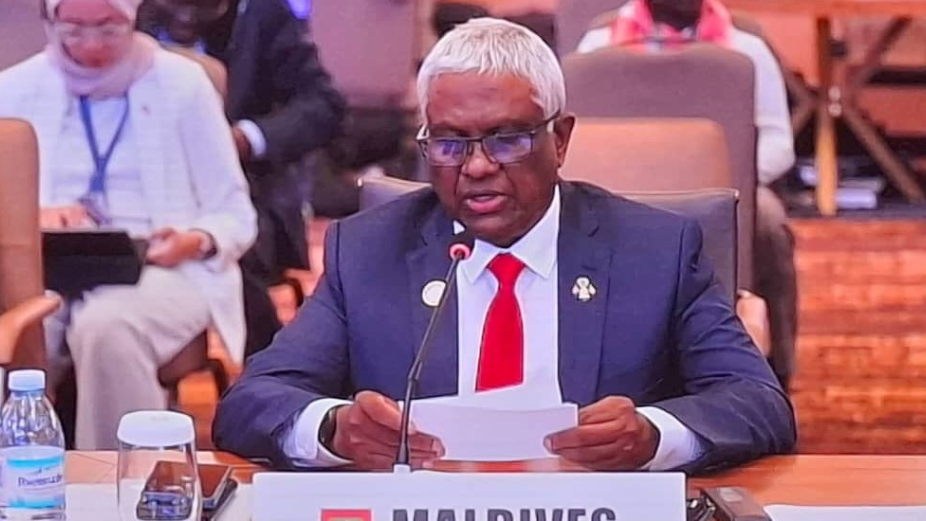
At the 19th Midterm Ministerial Meeting of the Non-Aligned Movement (NAM) held in Uganda, the Maldives called for a more responsive and reform-oriented Movement capable of addressing 21st century challenges.
Delivering the Maldives’ statement, Ambassador-at-Large Dr Mohamed Fahmy Hassan commended Uganda’s leadership under its current chairmanship and highlighted that the fast-changing global landscape demands stronger collective action from NAM. He said the Maldives envisions a revitalised NAM that can lead in addressing emerging non-traditional security threats, embrace innovation for sustainable and inclusive development, and take an active role in reforming global governance, including the United Nations Security Council.
Dr Fahmy stressed that the Movement’s ability to remain relevant depends on its responsiveness to modern realities such as climate change, digital transformation, and inequality. He said NAM must once again become a platform that reflects the priorities of developing nations and amplifies their collective voice in global decision-making.
On the Israel–Gaza conflict, the Maldives welcomed the agreement reached by NAM members to commence implementation of the first phase of the proposal to end the war in Gaza. Dr Fahmy urged Israel to abide by the terms of the agreement and reaffirmed the Maldives’ readiness to support genuine efforts toward lasting peace.
The meeting, held under the theme “Deepening Cooperation for Shared Global Affluence,” brought together ministers from across NAM’s 121 member states to review progress and chart a common path forward. Many participants reiterated that NAM, originally formed during the Cold War to safeguard independence from major power blocs, must now adapt to a new era marked by economic uncertainty, technological disruption, and environmental pressures.
For the Maldives, renewing NAM’s purpose aligns with its own foreign policy vision of strengthening multilateralism, ensuring fairer representation in global institutions, and advancing the interests of small island developing states. The country, which joined NAM in 1976, continues to advocate for equity, justice, and sustainable development through platforms that give small nations a voice in shaping the international order.











